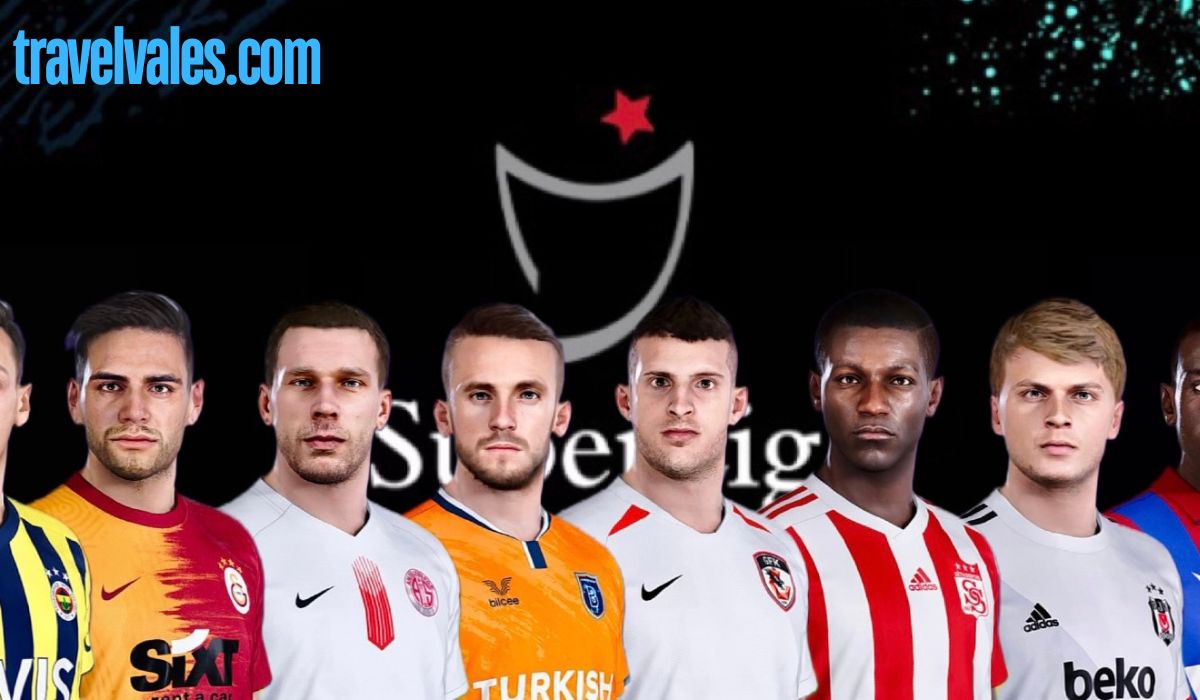Introduction to Süperlig
Süperlig is a term that resonates with football enthusiasts across Turkey and beyond. This premier football league represents the pinnacle of Turkish football, showcasing the best talent the country has to offer. In this comprehensive guide, we will delve into every aspect of Süperlig, from its history and structure to its impact on Turkish culture and its future prospects. By the end of this article, you will have a thorough understanding of what makes Süperlig such an integral part of Turkey’s sporting landscape.
Table of Contents
- History of Süperlig
- Origins and Early Years
- Evolution Over the Decades
- Structure of Süperlig
- Teams and Format
- Season Overview
- Promotion and Relegation
- Key Teams in Süperlig
- Galatasaray
- Fenerbahçe
- Beşiktaş
- Trabzonspor
- Notable Players
- Turkish Legends
- International Stars
- Süperlig and Turkish Culture
- Fan Culture and Rivalries
- Economic Impact
- Media Coverage
- Challenges and Controversies
- Financial Issues
- Match-Fixing Scandals
- Governance and Management
- Future of Süperlig
- Youth Development
- Technological Integration
- International Expansion
- How to Watch Süperlig
- Broadcast Information
- Streaming Services
- Conclusion
1. History of Süperlig
Origins and Early Years
The Süperlig, officially known as the Turkish Super League, was founded in 1959. Before the establishment of the league, football in Turkey was organized on a regional basis. The need for a national competition grew over time, leading to the creation of Süperlig. The league brought together the best teams from various regional leagues, aiming to crown a national champion.
In its inaugural season, 16 teams competed for the title, with Fenerbahçe emerging as the first-ever champions. This marked the beginning of a new era in Turkish football, setting the stage for decades of growth and development.
Evolution Over the Decades
Over the years, Süperlig has evolved significantly. Initially, the league struggled with financial instability and limited media coverage. However, the 1980s and 1990s saw a transformation, with increased investment in clubs and better infrastructure.
The league’s popularity surged, attracting international players and coaches, which helped improve the quality of football. The turn of the millennium marked a new chapter, with Süperlig becoming more professionalized and commercially successful. Today, it stands as one of the top leagues in Europe, known for its passionate fans and competitive nature.
2. Structure of Süperlig
Teams and Format
Süperlig comprises 20 teams, each representing different cities and regions across Turkey. The league operates on a system of promotion and relegation with the TFF First League (1. Lig), ensuring a dynamic competition every season.
Season Overview
The Süperlig season typically runs from August to May, with each team playing 38 matches – one home and one away against every other team. The team with the most points at the end of the season is crowned the champion, while the bottom three teams are relegated to the TFF First League.
Promotion and Relegation
Promotion and relegation are critical aspects of Süperlig. The bottom three teams at the end of the season are relegated to the lower division, making way for the top three teams from the TFF First League to be promoted. This system ensures fresh talent and competition each year, maintaining the league’s excitement and unpredictability.
3. Key Teams in Süperlig
Galatasaray
Galatasaray is one of the most successful and popular teams in Süperlig. Founded in 1905, the club has won numerous league titles and is known for its strong fan base. The team’s home ground, Türk Telekom Stadium, is a fortress where many memorable matches have been played.
Fenerbahçe
Fenerbahçe, another giant in Turkish football, was established in 1907. The club has a rich history and a passionate fan base known for creating a formidable atmosphere at their home ground, Şükrü Saracoğlu Stadium. Fenerbahçe has produced many legendary players and has consistently been a top contender in Süperlig.
Beşiktaş
Founded in 1903, Beşiktaş is one of the oldest and most storied clubs in Turkey. The team’s home, Vodafone Park, is located in Istanbul and is renowned for its electric atmosphere. Beşiktaş has a strong tradition of success and boasts a loyal fan base.
Trabzonspor
Trabzonspor, founded in 1967, is one of the few clubs outside Istanbul that has consistently challenged for the Süperlig title. The team hails from the city of Trabzon on the Black Sea coast and has a passionate following. Trabzonspor’s success has helped diversify the dominance in Turkish football.
4. Notable Players
Turkish Legends
Süperlig has been home to many legendary Turkish players who have left an indelible mark on the sport. Players like Hakan Şükür, Rıdvan Dilmen, and Metin Oktay are celebrated for their contributions to both their clubs and the national team. Their performances have inspired generations of footballers in Turkey.
International Stars
The league has also attracted numerous international stars over the years. Players like Gheorghe Hagi, Didier Drogba, and Wesley Sneijder brought global attention to Süperlig. Their presence not only raised the league’s profile but also enhanced the quality of football played.
5. Süperlig and Turkish Culture
Fan Culture and Rivalries
Football is more than just a sport in Turkey; it is a way of life. The fan culture in Süperlig is intense and vibrant. Rivalries, particularly those between Galatasaray, Fenerbahçe, and Beşiktaş, are fierce and deeply rooted in the country’s history and social fabric. Matchdays are marked by passionate displays of support, with fans creating an electrifying atmosphere in the stadiums.
Economic Impact
Süperlig has a significant economic impact on Turkey. The league generates substantial revenue through ticket sales, merchandise, and broadcasting rights. It also provides employment opportunities, from players and coaches to stadium staff and media personnel. The financial health of the league is crucial for the broader economy.
Media Coverage
Media coverage of Süperlig is extensive. Major television networks, sports channels, and online platforms broadcast matches, providing fans with numerous ways to follow their favorite teams. This coverage extends beyond live matches to include analysis, interviews, and behind-the-scenes content, keeping fans engaged year-round.
6. Challenges and Controversies
Financial Issues
Despite its success, Süperlig has faced financial challenges. Many clubs have struggled with debt and financial mismanagement. Efforts are ongoing to improve financial transparency and stability within the league, with measures such as financial fair play regulations being implemented.
Match-Fixing Scandals
Süperlig has not been immune to controversy. Match-fixing scandals have occasionally marred the league’s reputation. Authorities have taken steps to combat this, enforcing stricter regulations and penalties to preserve the integrity of the competition.
Governance and Management
Effective governance and management remain critical for Süperlig’s success. Ensuring that clubs operate within ethical and professional standards is essential. Ongoing efforts to improve governance structures aim to make the league more transparent and accountable.
7. Future of Süperlig
Youth Development
The future of Süperlig lies in youth development. Investing in academies and grassroots programs is crucial for nurturing the next generation of talent. Clubs are increasingly focusing on developing young players who can make a significant impact both domestically and internationally.
Technological Integration
Technology is playing an ever-growing role in football. Süperlig is embracing technological advancements such as VAR (Video Assistant Referee) and data analytics to improve decision-making and enhance the viewing experience for fans. These innovations are expected to continue shaping the league’s future.
International Expansion
Expanding the league’s international presence is a key goal. Attracting more international players and increasing global viewership can help Süperlig grow its brand. Efforts to forge partnerships with foreign clubs and leagues are also underway, aiming to enhance the league’s reputation on the global stage.
8. How to Watch Süperlig
Broadcast Information
Süperlig matches are broadcast on various television networks in Turkey, including beIN Sports. These networks offer comprehensive coverage, including pre-match analysis, live commentary, and post-match discussions. For international viewers, selected matches are available on international sports channels.
Streaming Services
In addition to traditional broadcasts, many fans opt for streaming services to watch Süperlig matches. Platforms like beIN Connect offer live streaming of games, making it convenient for fans to follow their teams from anywhere in the world. Subscriptions to these services often include additional features such as match replays and highlights.
YOU MAY ALSO LIKE: World Archivi – NAPOLITÀ: Unveiling Naples’ Cultural Canvas
Conclusion
Süperlig is more than just a football league; it is a cornerstone of Turkish culture and a source of immense national pride. Its rich history, passionate fan base, and competitive nature make it one of the most exciting leagues in the world. As it continues to evolve, embracing new challenges and opportunities, Süperlig promises to remain at the heart of Turkish football for years to come. Whether you are a lifelong fan or a newcomer to Turkish football, Süperlig offers something for everyone, encapsulating the spirit and passion that make football the beautiful game.
FAQS
FAQs about Süperlig
1. What is Süperlig?
Answer: Süperlig, officially known as the Turkish Super League, is the highest tier of professional football in Turkey. It was established in 1959 and features 20 teams competing for the national championship each season. The league runs from August to May, with each team playing 38 matches.
2. How does the promotion and relegation system work in Süperlig?
Answer: In Süperlig, the bottom three teams at the end of the season are relegated to the TFF First League (1. Lig). Conversely, the top three teams from the TFF First League are promoted to Süperlig. This system ensures a dynamic and competitive league by allowing new teams to join and compete each year.
3. Which are the most successful teams in Süperlig?
Answer: The most successful teams in Süperlig include Galatasaray, Fenerbahçe, and Beşiktaş. These clubs have won numerous league titles and have a rich history in Turkish football. Trabzonspor is another prominent club known for its consistent performances and success.
4. How can I watch Süperlig matches?
Answer: Süperlig matches are broadcast on various television networks in Turkey, such as beIN Sports. International viewers can also watch selected matches on global sports channels. Additionally, streaming services like beIN Connect offer live streaming of games, providing a convenient option for fans to follow their favorite teams online.
5. What impact does Süperlig have on Turkish culture and economy?
Answer: Süperlig has a significant impact on Turkish culture and economy. Football is deeply embedded in Turkish society, with passionate fan bases and intense rivalries. Economically, the league generates substantial revenue through ticket sales, merchandise, and broadcasting rights, while also providing employment opportunities across various sectors related to football.







